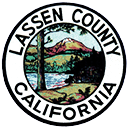Lassen County Behavioral Health: Infants 0-5 / Children / Youth / Adolescent / Transitional Age Youth
Children’s System of Care
Children’s System of Care (CSOC) provides service to children with moderate to severe emotional and behavioral problems. Services include: therapeutic assessments; individual and family therapy; case management/rehabilitation services; full service partnerships through the Mental Health Services Act; crisis services and coordination for psychiatric and medication services. Staff members work collaboratively with schools and other agencies throughout Lassen County to promote family unity and strengthen community support systems.
Integrative Approach
Our CSOC staff provides a family centered, individualized, community based, strength focused, needs driven collaborative approach to mental health treatment. A team of professional Behavioral Health clinicians and specialists work together with local schools, Lassen County Probation, Child & Family Services, and other community members to ensure the family reaches their goals.
Medi-Cal Services for Early and Periodic Screening, Diagnosis and Treatment (EPSDT)
EPSDT services are extra Medi-Cal services that are in addition to other Medi-Cal services. EPSDT services improve medical and mental health issues. These issues may include but are not limited to sadness, nervousness, or anger that makes one’s life difficult.
You must be under age 21 and have Full Scope Partnership Medi-Cal to get these services. Types of EPSDT services include: individual, group and family therapy, crisis counseling, case management, rehabilitation services/life skills training, Intensive Care Coordination (ICC), Intensive Home-Based Services (IHBS), Therapeutic Behavioral Services, and psychiatric services (medication).
ICC and IHBS are very likely to be medically necessary for children and youth who:
• Are receiving, or being considered for, Wraparound;
• Are receiving, or being considered for, a specialized care rate due to behavioral health needs;
• Are being considered for other intensive SMHS, including, but not limited to, TBS, or are receiving crisis stabilization /intervention services;
• Are currently in, or being considered for, high-level-care institutional settings, such as group homes or Short-Term Residential Therapeutic Programs (STRTPs);
• Have been discharged within 90 days from, or currently reside in, or are being considered for placement in, a psychiatric hospital or 24-hour mental health treatment facility [e.g. psychiatric inpatient hospital, psychiatric health facility (PHF), community treatment facility, etc.];
• Have experienced two or more mental health hospitalizations in the last 12 months;
• Have experienced two or more placement changes, within 24 months, due to behavioral health needs;
• Have been treated with two or more antipsychotic medications, at the same time, over a three-month period [Healthcare Effectiveness Data Information Set (HEDIS) Specification for Antipsychotics in Children and Adolescents (APC)];
• If the child is zero through five years old and has more than one psychotropic medication, the child is six through 11 years old and has more than two psychotropic medications, or the child is 12 through 17 years old and has more than three psychotropic medications;
• If the child is zero through five years old and has more than one mental health diagnosis, the child is six through 11 years old and has more than two mental health diagnoses, or the child is 12 through 17 years old and has more than three mental health diagnoses;
• Have two or more emergency room visits in the last 6 months due to primary mental health condition or need, including, but not limited to, involuntary treatment under California Welfare and Institutions (W &I) Code section 5585.50;
• Have been detained, pursuant to W&I sections 601 and 602, primarily due to mental health needs7; or
• Have received SMHS within the last year, and have been reported homeless within the prior six months.
Therapeutic Behavioral Services (TBS)
Therapeutic Behavioral Services (TBS) provide help and support to children, youth, and young adults (under age 21) who have challenging behaviors, are having difficulty maintaining their current placement, are being placed in or discharged from a Short-Term Residential Treatment Program (STRTP) or have had a psychiatric hospitalization within the past 24 months. A home and community based, short-term, intensive service, TBS is provided for an average of three – six months. The specialist assists the client and caregiver with the development of structure and new learning experiences that promotes mental and behavioral stability, healthy pro-social behavioral and supports the family in gaining new life skills.
Intensive Services
Children and youth with extensive mental health needs are provided Intensive Services outlined in the “Core Practice Model” (CPM).
For children and youth involved in both mental health and a child welfare agency, the CPM requires collaboration between child welfare and mental health staff, service providers, and community tribal partners working with the children, youth and families.
The CPM articulates a family-centered approach that intends to improve coordination and collaboration among mental health, child welfare, and children and families involved with the child welfare system who have mental health needs. Child and Family Team (CFT) meetings are held to facilitate coordination and collaboration. Core Intensive Services are Intensive Care Coordination (ICC) and intensive Home-Based Services (IHBS). Children and youth with extensive mental health needs but who are not involved in a Child Welfare agency are also eligible for Intensive Services.
CSOC Full Services Partner
Children identified as a full services partner (FSP) through the Mental Health Services Act (MHSA), are eligible for enhanced services. CSOC FSP is a strengths-based approach to assist children and their families to create positive change and reach their goals.
Contact Information:
Contact Information
Lassen County Behavioral Health
555 Hospital Lane
96130
Susanville
, CA
See map: Google Maps
Mon - Fri:
8:00 am-5:00 pm
Sat - Sun: Closed
Crisis Line: Toll free 24-Hour
Office
Fax
(530) 251-8394
